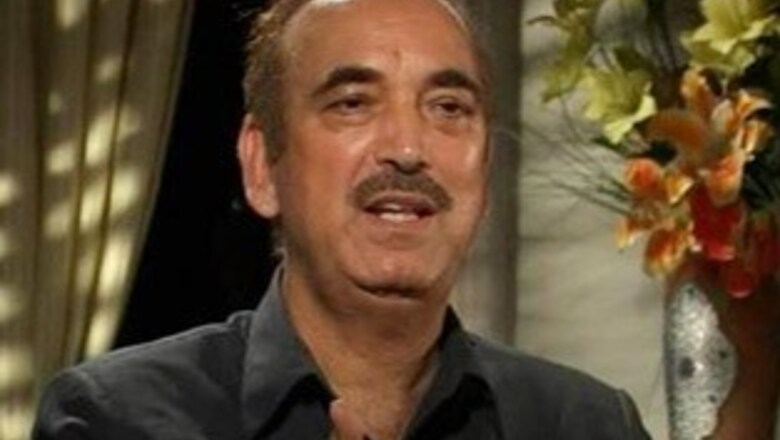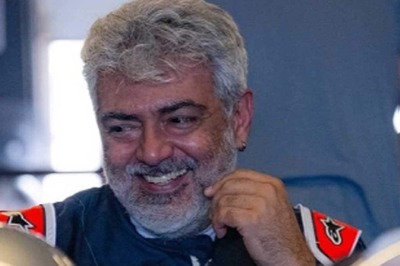
views
New Delhi: In a far-reaching move to improve healthcare services in rural India, doctors who opt to work in rural areas will be compensated with extra money and 'weightage' points that will help them when they apply for higher studies, Health Minister Ghulam Nabi Azad announced on Thursday.
"The only way to attract the attention of doctors to work in difficult, most difficult and inaccessible areas is through incentives. We have requested the states to give us the list under the above categories. We can provide extra money as extra incentive," Azad said.
He said 22 states have sent their list and they would work it out within this month.
"Assam has already done it," said Azad while listing out the achievements of his Ministry in the past 100 days.
Assam is the first state in the country to have carried out rural postings by appointing 768 doctors. The doctors will get a monthly salary of Rs 25,000, besides free accommodation in their area of posting.
"These arrangements are expected to substantially improve the morale of health service providers who work in remote and inaccessible areas in the country. This would go a long way in ensuring availability of quality health services on equitable and affordable basis in remote parts of the country," Azad said.
He also said that "additional weightage" would be given in the post-graduate examination at the rate of 10 per cent for each year of rural service. "It will be subject to a maximum of 30 per cent extra weightage for three years of rural service."
He said this service will have to be rendered after the internship period only. "This service will not only help the National Rural Health Mission (NRHM), but also help the MBBS doctors in accumulating extra weightage points for further studies," he added.
As India faces acute shortage of doctors and paramedics, the Government now plans to set up more medical colleges.
Apart from allowing Public Private Partnership for upgrading district hospitals to medical colleges in northeastern states, in hilly terrain and those states where medical colleges are fewer, the rules regarding land requirement have also been relaxed.
PAGE_BREAK
According to a Planning Commission report, India faces a shortage of about 600,000 doctors, one million nurses, 200,000 dental surgeons and a large number of paramedical staff.
Keeping in mind the shortage of medical specialists, the Ministry also plans to increase the seats for post graduation.
"It is expected that, without substantive additional resource and infrastructure requirement, the number of Post Graduate specialists would dramatically increase by almost 5,000 from the existing 13,000 to 18,000 within a short period of time," he said.
The Ministry plans to open new Auxiliary Nurse Midwives (ANMs) and General Nurse Midwives (GNMs) schools, especially in backward and unserved districts.
Azad said the government is committed to safeguard the credibility of Indian pharmaceutical products and for this they have amended the Drugs and Cosmetics Act.
Under the Act, the maximum penalty has been raised to life imprisonment and fine of Rs 10 lakh or three times the value of confiscated goods (whichever is more).
"India has a global presence in drugs and pharmaceuticals and ranks 4th in volumes and 14th in value in the world. India produces drugs and pharmaceuticals to the tune of Rs 85,000 crore, of which it exports are worth Rs 35,000 crore," he said.
He said the Ministry is planning to start annual surveys that will give yearly progress on the various health parameters like Infant Mortality Rate (IMR), Maternal Mortality Ratio (MMR) and Total Fertility Ratio (TFR).
"The Prime Minister had desired this annual health surveys," he said, adding that it will be conducted in 284 districts of nine states by the Registrar General of India (RRI). "We have sanctioned 109 posts and Rs 335 crore for the RRI to take up the survey during the period 2009-2012," he added.

















Comments
0 comment